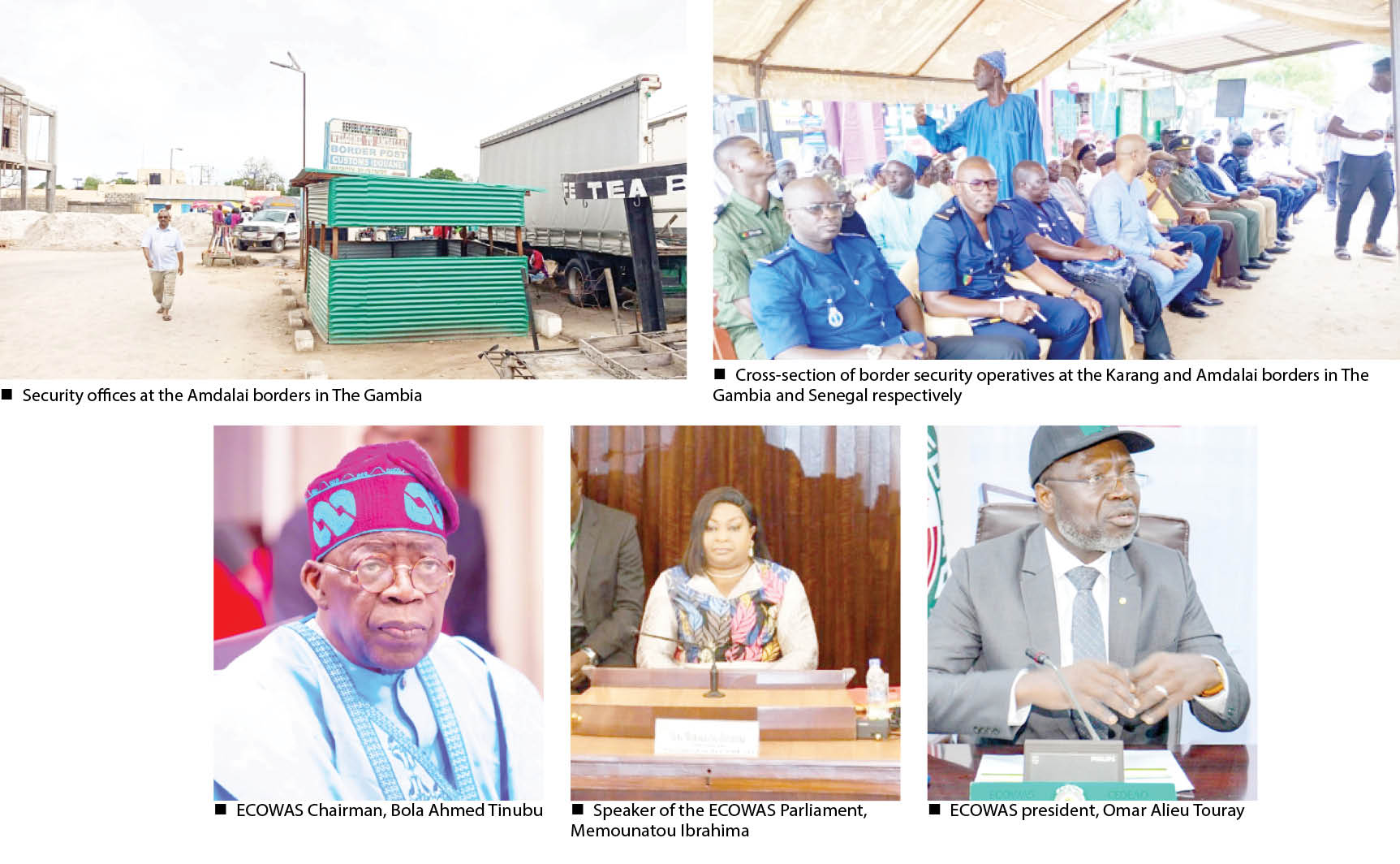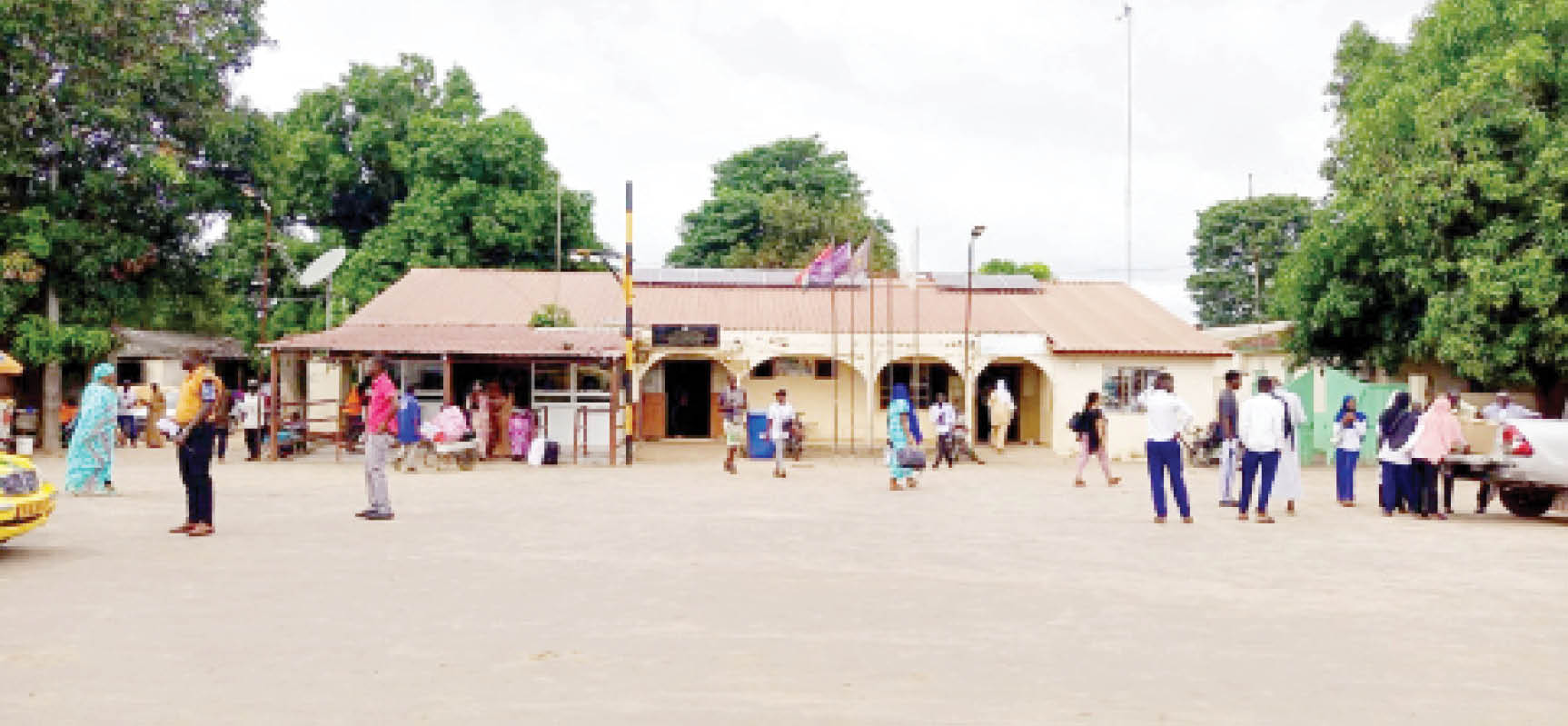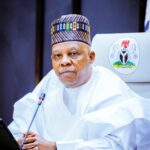The Economic Community for West African States (ECOWAS), a regional group of 15 West African countries, was founded on 28 May 1975, after the signing of a treaty in Lagos. The treaty was, however, revised on 24 July 1993, in order to pursue goals, including promoting cooperation and integration between Member States to establish an economic union in West Africa, maintain and enhance economic stability, foster relations among Member States, and contribute to the development of the African continent.
The Protocol on Free Movement of Persons and the Right of Entry, Residence and Establishment – one of the key pillars upon which the whole regional Integration and Development agenda rests – was adopted in 1979 by the Authority of Heads of State and Government.
The protocol is founded on three core principles – entry, residence and establishment. It is to be granted over a transitional period of 15 years through three phases which are to eliminate the need for visas in ECOWAS Member States by Community citizens, regulate Community citizens’ right of residence on Community territory to seek and take up paid employment, and facilitate the establishment of businesses and other economic activities by Community citizens to carry out economic activities in other ECOWAS Member States.
The right of entry entitles each Community citizen to enter Member States other than their country of origin without a visa for stays of up to 90 days, provided they possess a valid travel document and an international health certificate.
- Flood: Borno announces reliefs account, urges donation for victims
- PDP governors nominated appointtees to Tinubu –Wike
Years after its introduction, the protocol has made some headway, especially in the abolition of Visas for Community Citizens travelling intra-regionally, legal recognition of the right to residence and establishment, adoption of uniform ECOWAS passports, abolition of Residence Permits, and the creation of three joint border posts: Seme-Krake (Benin/Nigeria), Noepe-Akanu (Togo/Ghana) and Mfom-Ekuk (Nigeria-Cameroon).
Despite these achievements, stakeholders are of the view that the protocol’s implementation is still far below expectations as there were serious concerns. These concerns include the introduction of national legislations by Member States that are not aligned with the regional protocols, lack of institutional capacity to implement the protocol, and lack of political will by Member States to prioritise the implementation of the protocol.

Although the ECOWAS Free Movement Protocols provide for equal treatment in terms of employment, Member States’ nationals are still exposed to discriminatory practices.
Speaking on the challenges facing the implementation of the protocol, Speaker of the Gambia National Assembly, Fabakary Tombong Jatta, stressed that member states must ensure that national laws are harmonised with regional commitments, provide robust oversight to guarantee compliance and advocate tirelessly for the rights and welfare of all ECOWAS citizens.
Jatta said this at a delocalised meeting of the ECOWAS joint committees on Social Affairs, Gender and Women Empowerment, Legal Affairs and Human Rights, Political Affairs, Peace, Security and African Peer Review Mechanism (MAEP), Legal and Human Rights, Trade Customs and Free Movement at Banjul, The Gambia, late August.
He challenged the ECOWAS parliamentarians to focus on resolutions that will allow member states to harmonise national laws with regional commitments, including reviewing and amending immigration policies, labour laws, and other relevant legislation to align with the provisions of the protocol.
“Our legislative actions must be geared towards creating an enabling environment where the protocol can thrive and deliver on its promises.
“Equally, we must also recognise the numerous challenges that have impeded the full realisation of the protocol. Many of our citizens face significant difficulties when attempting to move across our borders. These challenges range from bureaucratic obstacles and inconsistent immigration policies to issues of national security.
“There is an urgent need to ensure that our laws facilitate, rather than hinder, the movement of people across our borders. Robust oversight on the part of you the parliamentarians is also essential to guarantee compliance with the protocol.
“We must hold our governments accountable for their commitments and ensure that they are implementing the necessary measures to facilitate free movement of our people across our region,” he said.
Why we are struggling with enforcement – Speaker
The Speaker of the ECOWAS Parliament, Memounatou Ibrahima, said weaknesses in the implementation mechanism, differences in national interests and infrastructure problems are hindering the implementation of the free movement protocol.
“In recent years, free movement within the Community has been severely tested by several factors. Weaknesses in the implementation mechanism, differences in national interests and infrastructure problems hinder the achievement of the protocol’s objectives,” she said.
Ibrahima noted that the full realisation of free movement in the ECOWAS area required strong governance, based on mutual trust, shared responsibility and ownership of results, calling on the body to put in place mechanisms that ensure constant monitoring for more effectiveness of its protocols.
Security personnel extorting travellers – Citizens
ECOWAS citizens in The Gambia have accused border security officials of extortion, saying there was no practical implementation of the ECOWAS free movement protocol in the region.
The President of ECOWAS citizens in The Gambia, Michel Koivogui, disclosed this in an interview with our correspondent who was in The Gambia.
“We talk about free movement, we hear about free movement but we can say that there is no free movement between the ECOWAS states.
“When you want to cross the borders, they will collect money from you even if you have all your travel documents with you. If you refuse, they will force you out of the vehicle and ask the driver to go.
“So, we have cases where the drivers leave the passengers and go simply because they (passengers) refuse to give security officials money,” he alleged.
Koivogui, who disclosed that receipts were never issued for such illegal payments, called for more sensitisation by the ECOWAS at the community level.
“I want the ECOWAS to organise more awareness programmes on ECOWAS protocols both for the citizens and the officers because we realised also that some officers at the borders don’t even know the protocols of ECOWAS,” he said.
Other stakeholders, including representatives of Chambers of Commerce and Industry, transport unions, market unions, market women associations, trade unions and labour unions in the country, all echoed Koivogui’s sentiments.
National security vs. free movement
Meanwhile, some security personnel have raised concerns about the impact of the regional bloc’s free movement protocol on security.
Border officials of the Karang and Amdalai borders in The Gambia and Senegal respectively, have said they place the security of their countries and people ahead of the implementation of the ECOWAS free movement protocols.
Aly Diasse, the Special Commissioner of Police at Karang (Senegal), said: “For each of our countries, security is the priority. There are many allegations and complaints but we try to address them.
“All the security officials at the borders have just one target, which is security of people and property.”
Diasse, who said the border police respect the ECOWAS protocol on free movement, assured that any citizen of the community with a valid national identity card or international passport could move freely across the border as long as he or she doesn’t pose any security threats to Senegal.
Also, Col. Yaya Moussa Thiem, Senegal’s head of customs at the Karang border, debunked the extortion accusations, saying “In Senegal, whatever you pay, you will receive a receipt.”
He alleged that most business people do not have documents to show that the goods they are transporting originated from ECOWAS.
He said those who have their complete documents were always allowed to cross the border freely.
Omar Bojang, the customs manager, trade facilitation and international cooperation in The Gambia, said only those who have their business registered enjoyed the free movement protocol benefits.
He lamented that most of the women complaining of difficulty in moving their goods across the borders are into informal businesses.
Bojang said informal business people are not covered by the ECOWAS free movement protocols.
While calling on member states to mainstream the informal business people, he also charged the ECOWAS to amend the protocols to capture the informal business people.
On his part, Juldeh Camara, the Commissioner of Police at the Amdalai border of The Gambia, urged the ECOWAS to establish a monitoring team at the borders to enforce its free movement protocols.
“If the border monitors are there and are genuine, most of these complaints will stop.
“If it (non-implementation of free movement protocols) is happening, those causing it will stop,” he said.
However, Sen. Edwin Melvin Snowe Junior, Co-chair of the ECOWAS joint committees on Social Affairs, Gender and Women Empowerment, Legal Affairs and Human Rights, Political Affairs, Peace, Security and African Peer Review Mechanism (MAEP), Legal and Human Rights, Trade Customs and Free Movement, rubbished the insinuation that the regional bloc’s free movement protocol was threatening member states’ security.
He said, “We are not preventing anyone from doing security jobs, we are all adults and we knew where they were coming from.
“There is nowhere in our protocol that we asked the state security not to take the necessary security precautions because at the end of the day, we are our brother’s keeper.
“So, we are not downgrading security but what we are asking them to do is to respect the protocol of free movement.
“Free movement does not mean you should not check security but you cannot intimidate the citizens, you cannot take money from them, you cannot extort them.
“You are asking each vehicle to pay 5000 CFA. How can paying 5000 CFA without a receipt equate with security?
“So, what we are talking about is not to compromise the security of any member state but to ensure that our citizens can move freely within the region.”
The lawmaker, however, acknowledged that more sensitisation was needed to get the message down to all citizens of the Community and security officials at the borders.
“We want to do more awareness. Many citizens have not heard about the protocols, they don’t know the protocols.
“We want to make copies of the different protocols and distribute them widely to customs, Immigration and others so that they can have a copy of the protocol and respect them.
“We also must do it in social media, in the schools for our students to know because some students do not know about these protocols,” he said.
Also, Hon. Maimuna Ceesay, a Member of the ECOWAS Parliament, wants the heads of security agencies at the borders to monitor the activities of their subordinates.
While narrating her experience when she tried to transport goods to the Gambia through the Senegal borders, Hon Ceesay said she was extorted by security officials.
She agreed that more sensitisation was needed to ensure the success of the initiative.

 Join Daily Trust WhatsApp Community For Quick Access To News and Happenings Around You.
Join Daily Trust WhatsApp Community For Quick Access To News and Happenings Around You.


